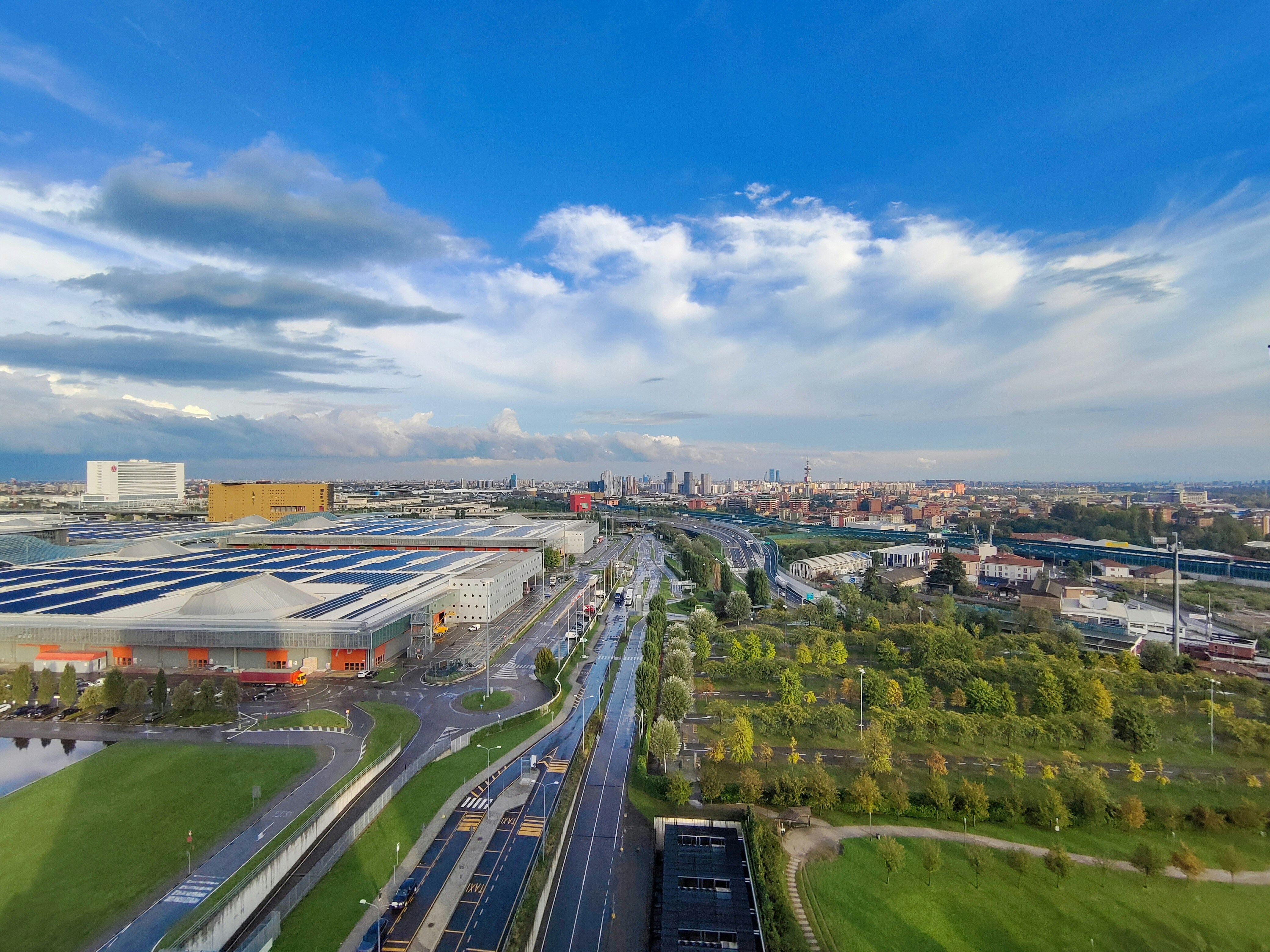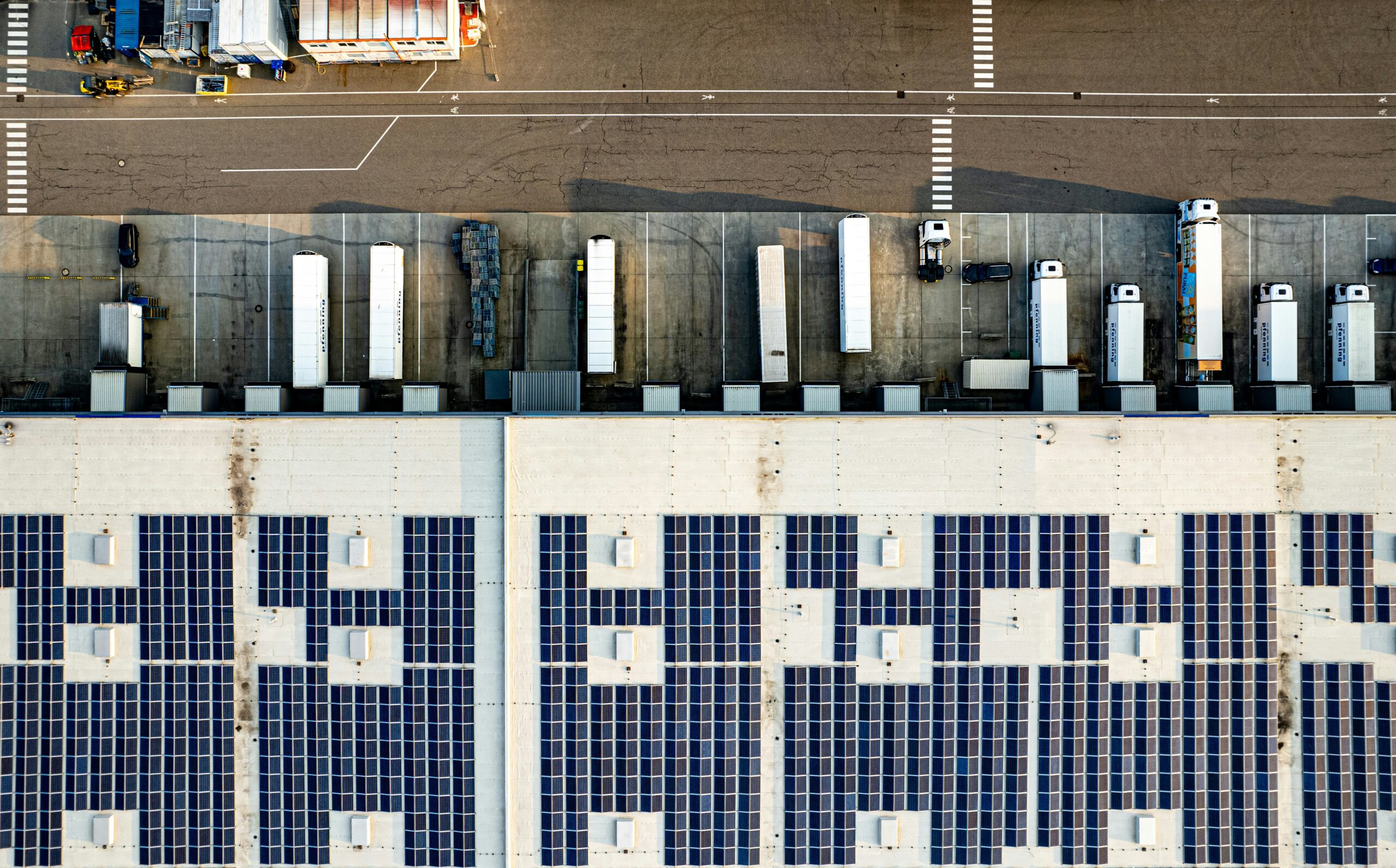Introduction to Sustainable Cities
Sustainable cities are urban areas designed with consideration for social, economic, and environmental impact, allowing for the conservation of resources while ensuring a high quality of life for residents. The concept underlying sustainable cities encompasses various principles, such as efficient energy use, waste reduction, and sustainable transportation options. Central to this vision is the objective of promoting a harmonious coexistence between urban development and natural ecosystems, thereby reducing the ecological footprint of cities.
The importance of sustainability in urban development cannot be overstated. As urbanization accelerates globally, with a significant rise in populations moving to cities, the strain on natural resources intensifies. Sustainable cities serve as a response to this challenge, aiming to balance the needs of inhabitants with the finite resources of our planet. A well-planned sustainable city integrates green spaces, renewable energy sources, and public transportation systems, all of which contribute to reducing greenhouse gas emissions, enhancing air quality, and improving overall livability.
Moreover, sustainable urban development has profound implications on the environment and quality of life. Cities that prioritize sustainability engage in practices that minimize pollution, offer enhanced public health outcomes, and foster social equity. By providing accessible public services and infrastructure, sustainable cities create more inclusive communities where individuals from diverse backgrounds can thrive. Additionally, the enhancement of green spaces promotes biodiversity and provides residents with recreational areas, improving overall mental and physical well-being.
In this context, industrial engineers play a pivotal role in shaping sustainable cities in the Arab World. Their expertise in systems optimization, resource management, and process improvement can significantly influence the design and implementation of urban planning initiatives. This sets the stage for a deeper exploration of how industrial engineers can actively contribute to the realization of sustainable urban environments.
The Role of Industrial Engineers
Industrial engineers play a crucial role in the development of sustainable cities, especially in the context of the Arab world. Their expertise encompasses various domains, including systems optimization, project management, and process improvement, making them indispensable in urban planning and management. With cities experiencing rapid growth, the demand for effective and efficient systems has never been greater, and industrial engineers are uniquely positioned to address these challenges.
One of the primary skills industrial engineers bring to the table is systems optimization. This entails analyzing complex urban processes to identify inefficiencies and propose data-driven solutions that enhance overall functionality. For instance, in transportation systems, industrial engineers utilize modeling and simulation techniques to improve traffic flow, reduce congestion, and ultimately minimize environmental impact. By optimizing transportation networks, they contribute significantly to reducing carbon emissions, promoting sustainability, and improving quality of life in urban areas.
Project management is another vital competency that industrial engineers possess. They are adept at coordinating multi-disciplinary teams and ensuring that projects are completed on time and within budget. In the context of building sustainable cities, effective project management contributes to the successful execution of various initiatives, such as the implementation of green infrastructure, renewable energy projects, and waste management systems. Their ability to manage resources efficiently enhances project outcomes, leading to more resilient urban environments.
Process improvement, a hallmark of industrial engineering, also plays a significant role in creating sustainable cities. By analyzing and refining existing processes, industrial engineers can introduce more sustainable practices across urban sectors. For example, they can improve the efficiency of water supply systems or enhance waste management practices, thus significantly reducing resource consumption and environmental impact. Overall, the integration of these skills allows industrial engineers to tackle urban challenges, driving progress toward sustainable development in the Arab world.
Challenges Facing Urban Development in the Arab World
The Arab World is experiencing unprecedented urbanization, with an increasing number of people migrating to cities in search of better prospects. This rapid urban growth presents significant challenges that urban planners and industrial engineers must confront. One of the most pressing issues is resource scarcity, particularly concerning water and energy supply. Many regions in the Arab World face arid climates, which exacerbate the difficulties in sourcing clean water and sustainable energy. Overexploitation of existing resources can lead to severe environmental degradation, making sustainable urban development not only imperative but a necessity.
Moreover, the vast disparity in socio-economic status among citizens creates social equity issues that hinder harmonious urban development. Many urban centers in the Arab World struggle with inadequate infrastructure and insufficient public services, leading to a divided society where wealth and opportunities are concentrated in specific areas. This inequality is further aggravated by the lack of affordable housing, resulting in informal settlements that often lack basic facilities. The challenge, therefore, lies in designing inclusive urban policies that ensure equitable access to resources.
Furthermore, the region faces political and economic instability, which complicates efforts to implement sustainable practices. Fluctuating economic conditions and ongoing conflicts can divert focus and resources away from long-term urban planning initiatives. To counter these obstacles, there is an urgent need for strategic frameworks that prioritize sustainable development goals, integrating innovative engineering solutions that address both environmental and social aspects.
As cities in the Arab World continue to grow, it is crucial for stakeholders, including local governments and international organizations, to collaborate effectively. The integration of sustainability into urban planning not only involves addressing immediate challenges but also ensures that future generations inherit resilient and sustainable urban environments. By recognizing and tackling these diverse challenges, cities in the Arab World can pave the way toward a more sustainable future.
Sustainable Urban Planning and Design
Sustainable urban planning and design are critical components in the development of cities that can adapt to the challenges of the modern world. Industrial engineers play a pivotal role in this process by applying methodologies that focus on efficiency, sustainability, and long-term viability. One such methodology is lean design, which emphasizes minimizing waste and maximizing resource efficiency throughout urban development projects. By utilizing principles of lean design, industrial engineers can streamline processes in construction, reduce material usage, and ultimately contribute to cost-effective and sustainable urban infrastructures.
Another notable approach is eco-urbanism, which integrates ecological principles into urban design. This philosophy promotes the creation of green spaces, the implementation of renewable energy sources, and sustainable water management systems. Industrial engineers can leverage data analysis and modeling techniques to determine optimal locations for parks and green roofs within city layouts, ensuring that ecosystems thrive alongside urban development. Incorporating features such as smart grids and sustainable transportation systems also aligns with eco-urbanism goals, thereby enhancing the overall livability of urban areas.
The integration of technology is equally essential in sustainable urban planning. Industrial engineers can harness advanced technologies such as Geographic Information Systems (GIS) to analyze spatial data, enabling informed decision-making in the design of city infrastructures. Smart city solutions, facilitated by the Internet of Things (IoT), allow for real-time monitoring of urban systems, improving adaptability and efficiency. In turn, this contributes to a better quality of life for residents while minimizing the environmental footprint of urban areas.
Through the combination of methodologies like lean design and eco-urbanism, along with the integration of technology, industrial engineers are well-positioned to lead the charge in sustainable urban planning and design. Their expertise can guide the development of resilient, adaptable city infrastructures that cater to the needs of the present while preserving resources for future generations.
Environmental Sustainability Practices
Industrial engineers play a pivotal role in fostering environmental sustainability within urban settings, particularly in the Arab world, where rapid urbanization poses significant challenges. By implementing effective waste management systems, energy efficiency measures, water conservation techniques, and green building practices, these professionals can contribute immensely to creating sustainable cities.
One of the most pressing issues in many Arab cities is waste management. With increasing populations and consumption patterns, efficient waste disposal and recycling systems are needed. Industrial engineers are equipped to design and optimize waste management processes that minimize landfill usage and encourage recycling. For example, cities like Dubai have implemented smart waste management solutions, utilizing technology to track waste generation and disposal, thereby enhancing overall efficiency and reducing environmental impacts.
Energy efficiency is another critical area where industrial engineers can make a difference. They can conduct energy audits to identify wasteful practices and recommend solutions such as the adoption of renewable energy sources, which are abundant in many Arab regions. For instance, initiatives in Morocco have demonstrated successful integration of solar energy technologies in urban infrastructure, providing a sustainable alternative to fossil fuels.
Water conservation practices are equally essential, especially in arid regions. Industrial engineers can devise methods for optimizing water usage in both residential and commercial sectors. Implementing greywater recycling systems and promoting water-efficient fixtures can significantly reduce water wastage. For instance, Qatar has initiated programs focused on reducing per capita water consumption through community awareness and innovative technologies.
Lastly, green building practices should be embraced to ensure that new developments are environmentally friendly. Industrial engineers can advocate for the use of sustainable materials, energy-efficient designs, and eco-friendly construction practices. Notably, the construction of the Sustainable City in Dubai serves as a model by integrating these principles, showcasing how urban planning can harmonize with environmental stewardship.
Community Engagement and Stakeholder Collaboration
In the context of building sustainable cities in the Arab world, the role of industrial engineers extends beyond technical expertise; it encompasses the vital aspect of community engagement and collaboration with stakeholders. To create urban solutions that resonate with local populations, it is essential to involve them in the planning process. Industrial engineers can facilitate this engagement by employing various strategies that ensure diverse voices are heard and considered.
One effective approach is conducting workshops and focus groups that bring together community members, local leaders, and various stakeholders. These sessions offer a platform for individuals to express their needs, concerns, and aspirations regarding urban development. By fostering an inclusive environment, industrial engineers can gather valuable insights that inform the design of infrastructure, transportation systems, and public spaces. This collaborative effort not only enhances the relevance of the solutions but also cultivates a sense of ownership among residents.
Moreover, leveraging technology can significantly enhance community engagement. Utilizing mobile applications and online surveys allows for broader participation, particularly from those who may be unable to attend in-person meetings. By distributing digital platforms for feedback, industrial engineers can gather data efficiently, ensuring that community preferences are expressed and addressed in their projects.
Building partnerships with local governments, non-profits, and businesses is another pivotal aspect of stakeholder collaboration. Through these alliances, industrial engineers can enhance resource sharing, improve project funding, and collectively address challenges. Such collaborations further ensure that the solutions developed are not only sustainable but also economically viable, ultimately benefiting the entire community.
In summary, community engagement and stakeholder collaboration are paramount for industrial engineers striving to design inclusive urban environments. By implementing strategic mechanisms for effective communication and collaboration with community members and stakeholders, engineers can foster a sustainable future for cities in the Arab world.
Case Studies of Successful Initiatives
The importance of sustainable urban development has led to various innovative initiatives driven by industrial engineers across the Arab world. These case studies illustrate how strategic planning, efficient resource management, and community engagement can foster sustainable cities. One notable example is the Masdar City project in Abu Dhabi, United Arab Emirates. Designed as a zero-carbon city, it serves as a hub for clean technology and renewable energy. Industrial engineers have played a pivotal role in optimizing energy usage through smart grid technologies and waste management systems, reducing environmental impact while promoting economic growth.
Another impressive initiative is the Eko Atlantic project in Lagos, Nigeria, which, while not strictly in the Arab world, attracts attention for its innovative approach to building a sustainable urban environment. Industrial engineers contributed to the planning and execution of the coastal city to mitigate flooding and sea-level rise while promoting mixed-use development. Adaptable infrastructure and eco-friendly transportation options are among the strategies implemented, showcasing a blueprint for future urban projects in similar contexts.
In Jordan, the Eco-Industrial Park in Irbid represents a collaborative effort between industrial engineers, local authorities, and businesses to create a model for resource efficiency. This initiative emphasizes the importance of stakeholder engagement, whereby engineers work closely with the community to develop strategies that minimize waste and enhance recycling efforts. The application of industrial symbiosis within this park demonstrates how businesses can share resources, thus contributing to both economic viability and environmental sustainability.
These examples underscore the critical contributions of industrial engineers in fostering sustainable urban development. They highlight not only technological advancements but also the necessity of interdisciplinary collaboration and community involvement in achieving urban sustainability. As cities worldwide face significant environmental challenges, the strategies devised by industrial engineers in the Arab world offer valuable insights into replicable, successful initiatives that can be adapted to various contexts.
The Future of Sustainable Urban Development in the Arab World
The Arab world is poised for transformative changes in urban development, driven by both necessity and opportunity. As rapid urbanization continues to challenge existing infrastructures, emerging trends in sustainable cities offer a glimpse into a more resilient future. One of the pivotal aspects of this transformation is the integration of smart city technologies, which enable optimal resource management, enhance efficiency, and improve the quality of life for citizens. In this context, industrial engineers play a crucial role in designing systems that utilize data analytics, Internet of Things (IoT) devices, and automation to create sustainable urban environments.
Mobility solutions are another significant trend shaping the future of cities in the Arab region. As populations grow and urban congestion increases, innovative public transportation systems, including electric buses and light rail networks, are being developed to provide efficient and eco-friendly alternatives to private vehicles. Industrial engineers can contribute by optimizing these transport systems to ensure they are not only effective but also economically viable and accessible to various demographics. Furthermore, promoting active transportation modes such as cycling and walking is essential for fostering sustainable urban mobility.
Policy frameworks will also play a vital role in guiding the development of sustainable cities. There is a growing recognition of the importance of policies that foster collaboration among stakeholders, including government entities, private sectors, and civil society. As urban planners and policymakers seek to create environments that prioritize sustainability, industrial engineers can provide data-driven insights and strategic solutions that align development goals with sustainable practices. By taking an integrated approach, they can help shape policies that address climate change, promote resource efficiency, and enhance urban resilience.
In summary, the future of sustainable urban development in the Arab world hinges on innovative technologies, smart mobility solutions, and effective policy frameworks, each providing opportunities for industrial engineers to lead the way in meeting the challenges ahead.
Conclusion and Call to Action
In reviewing the pivotal role of industrial engineers in the development of sustainable cities in the Arab world, it becomes evident that their contributions extend far beyond traditional engineering boundaries. By applying their expertise in systems optimization, resource management, and process efficiency, industrial engineers are uniquely positioned to address the myriad challenges faced by urban environments oggi. They can significantly enhance sustainability initiatives through data-driven decision-making, innovative design, and the implementation of best practices in urban planning.
The integration of sustainable practices into the fabric of urban infrastructure not only fosters greener communities but also promotes economic viability and social equity. Industrial engineers are instrumental in this process, working collaboratively with stakeholders to ensure that urban development aligns with sustainability goals. Their multifaceted approach enables cities to better manage resources, reduce waste, and improve the quality of life for residents. This commitment to sustainable development is no longer just an option; it is a necessity for the future of urban living in the Arab world.
Therefore, it is imperative for individuals, businesses, and governments to actively support initiatives focused on sustainability in urban planning. Engaging with local industrial engineers and promoting their methodologies can lead to significant improvements in urban sustainability. Whether through educational programs, community projects, or policy advocacy, every effort counts in creating cities that not only meet today’s demands but also protect ecological and social systems for future generations.
As a call to action, we encourage our readers to explore and participate in local sustainability initiatives. Whether volunteering time, attending workshops, or simply advocating for sustainable practices, every contribution plays a vital role in shaping the future of cities in the Arab region. Together, we can build resilient, sustainable urban environments that thrive economically and ecologically.


